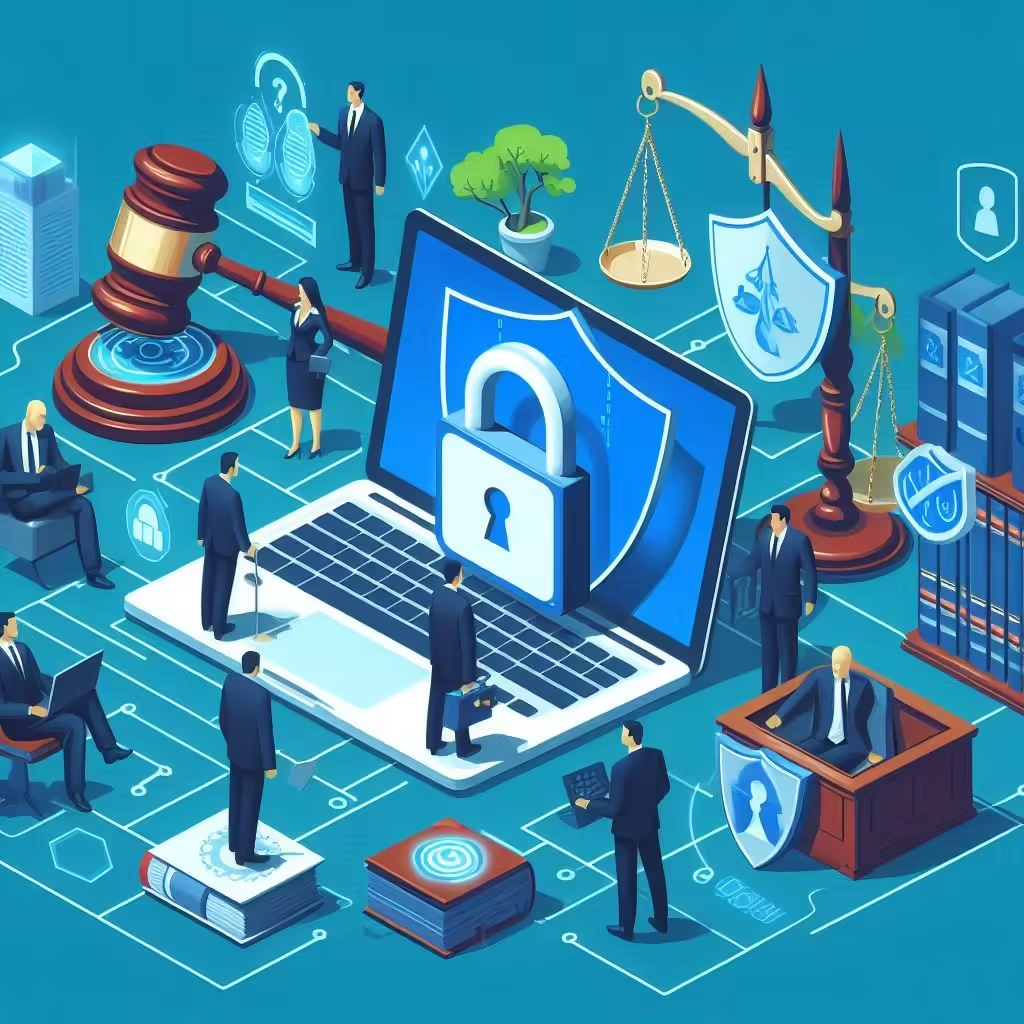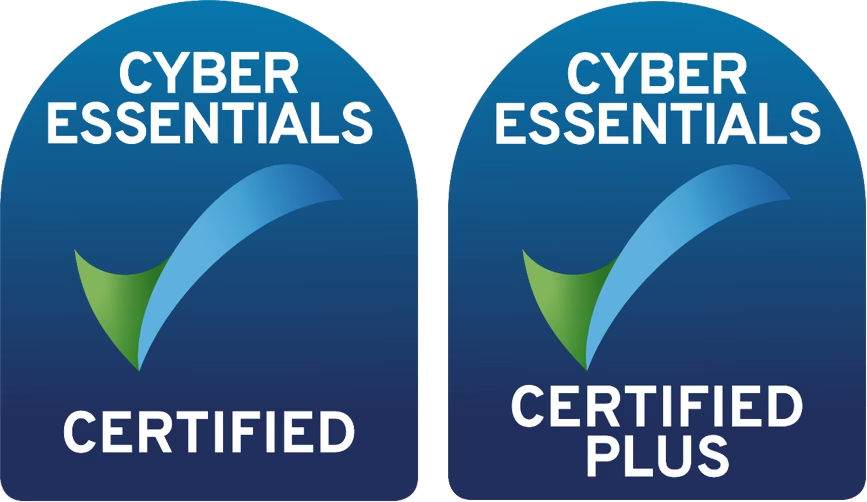The Growing Cybersecurity Threat to Small Law Firms
As technology continues to advance, small law firms are increasingly becoming prime targets for cybercriminals. These firms often handle sensitive client information, including personal and financial data, which is highly valuable to cybercriminals.
Unfortunately, small law firms may not have the same level of cybersecurity measures in place as larger firms, making them more vulnerable to attacks.
Common cyber threats targeting small law firms include phishing scams, ransomware attacks, and data breaches. These threats can lead to significant financial losses, damage to the firm’s reputation, and legal consequences if client data is compromised.

According to UK Cyber Security Statistics Small Law Firms
- 65% of UK law firms have experienced a cyber incident.
- 35% still lack a cyber mitigation plan.
- 69% of organizations including law firms, have been infected by ransomware.
- Cyber breaches at UK law firms increased by 36% in the past year.
- 72% of UK law firms do not have cyber insurance.
- 77% of cyber incidents are due to staff errors.
- Only 40% of UK Law firms conduct third-party security assessments.
These alarming figures highlight the urgent need for small law firms to bolster their cybersecurity measures to protect sensitive client data and maintain their reputation. Alarmingly, cyber breaches at UK law firms increased by 36% in the past year.
This rise highlights the growing threat that cybercriminals pose to the legal industry and underscores the urgent need for law firms to invest in robust cybersecurity measures to protect sensitive client information and maintain their reputation.

72% of UK law firms do not have Cyber Insurance
Moreover, 72% of UK law firms do not have cyber insurance. This is a very serious issue because, without cyber insurance, law firms are left vulnerable to the financial repercussions of cyberattacks.
Cyber insurance can provide crucial support in the event of a data breach or cyber incident, covering costs such as legal fees, notification expenses, and recovery efforts. Without this safety net, law firms may struggle to manage the financial burden of a cyberattack, which can lead to significant financial losses, damage to their reputation, and potential legal consequences.
The lack of cyber insurance also indicates a broader issue of inadequate cybersecurity measures within the industry, highlighting the urgent need for law firms to prioritize cybersecurity and protect their sensitive client information. Law firms must take proactive steps to safeguard their operations and ensure the trust of their clients.

Phishing Attacks on Law Firms
Phishing attacks on law firms have become increasingly prevalent in the last two years. In fact, almost half (45%) of UK organizations, including law firms, have been compromised by phishing attacks in 2022 and 2023. This alarming statistic highlights the urgent need for law firms to take proactive measures to protect themselves from these types of cyber threats.
Fortunately, there are several measures that can help protect against these types of attacks:
- Employee Training: Regular cybersecurity awareness training is crucial, as employees need to quickly identify phishing attempts.
- Endpoint Protection: Devices should always have protection enabled so that even if an employee clicks on a malicious link or opens a dangerous attachment, the threat is neutralized.
- Multi-Factor Authentication (MFA): MFA adds an extra layer of security, ensuring that even if login credentials are compromised, unauthorized access is prevented.
By implementing these measures, law firms can significantly reduce the risk of phishing attacks and protect their sensitive client information.
Case Studies: Cyberattacks on Small UK Law Firms
A small law firm based in London, specializing in family law, experienced a significant cyberattack in early 2023. The firm had a team of 10 employees and handled sensitive client information, including personal identification details, financial records, and legal documents.
The Attack
The attack began with a phishing email sent to one of the firm’s junior solicitors. The email appeared to be from a trusted client and contained a malicious link. Upon clicking the link, the solicitor unknowingly downloaded ransomware onto the firm’s network.
Impact
- Data Encryption: The ransomware encrypted all the firm’s files, making them inaccessible.
- Operational Disruption: The firm was unable to access client files, leading to a halt in operations for several days.
- Financial Loss: The firm faced significant financial losses due to the ransom payment and the cost of IT services to restore their systems.
- Reputation Damage: The breach damaged the firm’s reputation, leading to a loss of client trust and potential future business.
Response
- Incident Reporting: The firm reported the incident to the National Cyber Security Centre (NCSC) and Action Fraud.
- Ransom Payment: Despite advice against it, the firm decided to pay the ransom to regain access to their files.
- System Restoration: IT specialists were brought in to remove the ransomware and restore the firm’s systems.
- Client Notification: The firm notified affected clients about the breach and the steps being taken to secure their data.
Lessons Learned
- Employee Training: The firm implemented regular cybersecurity training for all employees to recognize and avoid phishing attempts.
- Enhanced Security Measures: They upgraded their cybersecurity infrastructure, including advanced email filtering, endpoint protection, and regular system backups.
- Incident Response Plan: The firm developed a comprehensive incident response plan to quickly address any future cyber threats.
This case highlights the importance of robust cybersecurity measures and the potential consequences of cyberattacks on small law firms.

Best Practices for Enhancing Cybersecurity in Small Law Firms
To bolster cybersecurity, small law firms should prioritize encryption for all client data, ensuring it is protected both in transit and at rest. This measure guarantees that, even if data is compromised during an attack, such as ransomware, it remains unreadable without the appropriate decryption key.
Adopting a zero-trust architecture is crucial. This security model mandates that every user and device is authenticated and authorized before accessing any resources, thereby minimizing the risk of unauthorized access and potential breaches.
Insider threats are another significant risk. It’s usually some form of a data breach that involves employees doing something wrong or against company policies. It can be something simple like sending an email to the wrong address, or more serious, using the same credentials on work and home computers, exposing the company to a more severe cyberattack.
Employee training: whether it’s teaching them about phishing or about unintentional data breaches, training is the cornerstone of a cyber protection plan. Employee Monitoring: Regularly monitor for unusual behaviour, such as employees accessing files outside of normal working hours or from unknown locations.
The Role of Employee Training in Preventing Cyberattacks
Employee training plays a pivotal role in preventing cyberattacks by equipping staff with the knowledge and skills to recognize and respond to potential threats. Regular training sessions help employees identify phishing attempts, understand the importance of strong passwords, and follow best practices for data security.

Choosing the Right Cybersecurity Solutions for Small Law Firms
While large firms can allocate substantial resources to cybersecurity, smaller practices often find this challenging. Thankfully, this doesn’t have to be the case.
Our team at Speedster IT offers a comprehensive suite of services to help law firms achieve cyber compliance.
From endpoint solutions and a zero trust architecture to monitoring for insider threats and employee cyber security training, we provide enhanced security measures tailored to your needs.
Our incident response plan, cyber insurance, dark web monitoring, data encryption, cyber security it relocation services and multi-factor authentication (MFA) ensure that your firm is protected from all angles. To learn more about how we can safeguard your practice, get in touch with us at 0204 511 9111.

With over 15 years at Speedster IT, I’ve built a career around helping businesses navigate the evolving world of technology. I publish all the content for the IT Support London Blog and Cyber Security Blog, where I share practical insights on infrastructure upgrades, cybersecurity trends, and smart IT strategies for growing companies.
